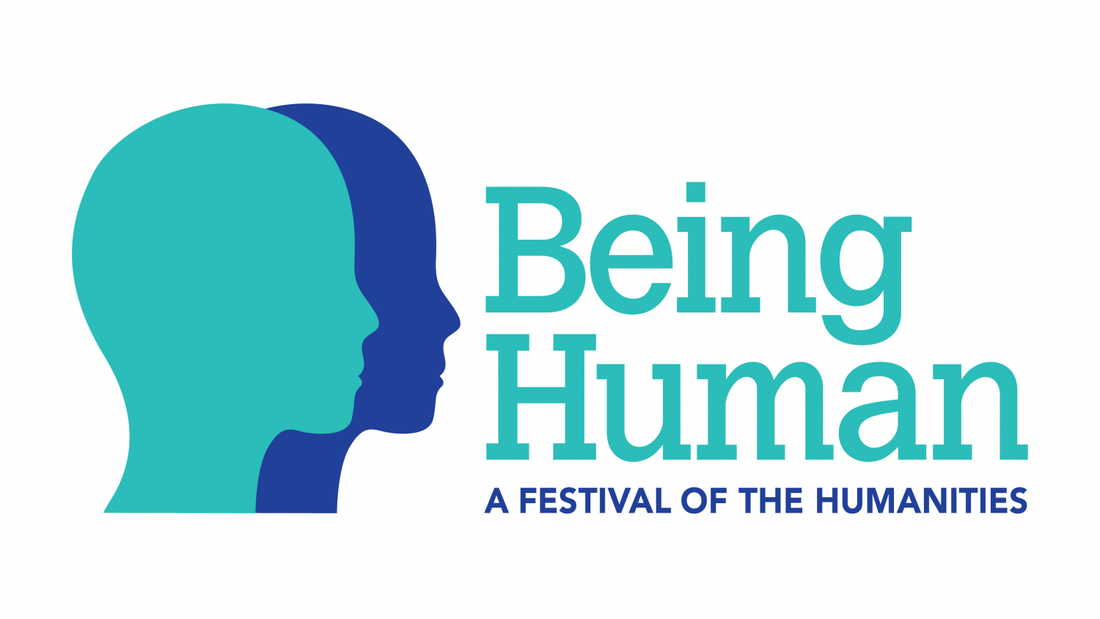EUPHEMIA BARNETT (1890-1970)
The life of Dr Euphemia Barnett was one of passion for botany and academic research, as well as a belief that “everyone must play his or her part before the ideal state of world harmony could be attained”. Dr Barnett’s lifelong involvement in, and leadership of, local youth and community organisations was testament to this belief.
Euphemia Cowan Barrett was born in Aberdeen in 1890 and educated at the High School for Girls in Aberdeen. She went on to study botany and graduated with a BSc from the University of Aberdeen in 1918. On graduation she was invited by Professor J.W.H. Trail to assist him in the Botany Department of the University. She subsequently became senior assistant to Professor Craib, where on his recommendation her term of office was extended to seven rather than the normal five years. Following her period of office Dr Barnett was appointed to the Botany Department of the West of Scotland College of Agriculture, Glasgow, where for a short time she worked with Mrs Alcock, Plant Pathologist for Scotland, at the Royal Botanic Gardens, Edinburgh. She was appointed Lecturer in Biology in the School of Pharmacy, Robert Gordon's Technical College, Aberdeen, in 1930 - a post she held until 1945. Dr Barnett gained her DSc in 1940 from the University of Aberdeen, for research on the Siamese botanical specimens of Dr A.F.G. Kerr.
She was an active member of several local and University committees and appointed to the Business Committee of the General Council of University of Aberdeen in 1942. She also served as president of the Aberdeen branch of the British Federation of University Women. As a member of the Aberdeen Business and Professional Club, Dr Barnett gave a presentation in 1942 on the potential of the green colouring matter from nettles for “a war purpose of which we cannot possibly tell you anything”. The nettle stalks were also being investigated for use in paper making. In 1945, Dr Barnett was offered and accepted the position as Head of the Biology Department at Aberdeen College of Education, where she remained until her retirement in 1955. It was not until her retirement that Dr Barnett was able to continue her research as a research fellow at the University of Aberdeen.
Dr Barnett was a member of the Committee representing the public bodies and girls’ associations. The object of the corps was to provide a general training for national service primarily for girls of sixteen to eighteen years, and to equip them in character, body and mind to fulfil their obligations to the nation in war and peace. Dr Barnett was a leading Girl Guide figure in the North East of Scotland. Her association with the movement lasted over 60 years, from the time it started in Aberdeen. She was County Commissioner for the City of Aberdeen from 1948 to 1958, after which she became County President until her death in 1970. In 1941, she gave a talk to Scouters and Scouts on the method of collecting and preparing drug plants, urging the young people to take prompt steps to collect the plants during the holidays at a time when camping was so restricted.
In 1948, as County Commissioner with almost 100 Rangers in attendance from the UK, Australia and Holland, she conducted the re-dedication ceremony to God and King at Birkhall House “where Princess Elizabeth - a fellow Ranger - and the Duke of Edinburgh spent part of their honeymoon”. Euphemia joined the Aberdeen club of Soroptimist International Great Britain and Ireland (www.sigbi.org/Aberdeen) in 1939. She served as President of Soroptimist Aberdeen from 1942 to 1944, during which time she continued fund raising for the war effort. Donations at this time were given to Morningfield Hospital, Aberdeen Maternity Hospital Mother and Baby Home, Prisoner of War Funds and for soldiers’ teas and cigarettes.
In 1941, Dr Barnett spoke to the Soroptimist group of the heavy cost to soldiers of the 2 1/2d postage stamp, and shared her observations on the kindness of soldiers who would have a collection to help a child buy a sweet in the hospital ward. “The spirit of the soldiers in the hospital is the proof that we shall win the war,’ she suggested. She was described as being “stern in judgement for her principles were of steel, but her charity covered the world”.
Following her retirement in 1955, Dr Barnett was granted a Research Fellowship from the University of Aberdeen, where she continued research from her earlier doctoral thesis “A survey of the genus Quercus and related Genera of the Fagaceae in Asia with a more detailed account of the Siamese species of these Genera and Notes on the use of Leaf Anatomy in Taxonomy”. This was carried out partly in the Herbarium in Aberdeen and partly at Kew. The research led to her being honoured posthumously for her work on Thai flora by having a species of flora, the Genus Barnettia (Bignoniaceae) which is endemic to Thailand, named after her by Dr Santisuk, Director of the Forest Herbarium, Royal Forest Department, Bangkok.
Soroptimist International of Aberdeen Club
Euphemia Cowan Barrett was born in Aberdeen in 1890 and educated at the High School for Girls in Aberdeen. She went on to study botany and graduated with a BSc from the University of Aberdeen in 1918. On graduation she was invited by Professor J.W.H. Trail to assist him in the Botany Department of the University. She subsequently became senior assistant to Professor Craib, where on his recommendation her term of office was extended to seven rather than the normal five years. Following her period of office Dr Barnett was appointed to the Botany Department of the West of Scotland College of Agriculture, Glasgow, where for a short time she worked with Mrs Alcock, Plant Pathologist for Scotland, at the Royal Botanic Gardens, Edinburgh. She was appointed Lecturer in Biology in the School of Pharmacy, Robert Gordon's Technical College, Aberdeen, in 1930 - a post she held until 1945. Dr Barnett gained her DSc in 1940 from the University of Aberdeen, for research on the Siamese botanical specimens of Dr A.F.G. Kerr.
She was an active member of several local and University committees and appointed to the Business Committee of the General Council of University of Aberdeen in 1942. She also served as president of the Aberdeen branch of the British Federation of University Women. As a member of the Aberdeen Business and Professional Club, Dr Barnett gave a presentation in 1942 on the potential of the green colouring matter from nettles for “a war purpose of which we cannot possibly tell you anything”. The nettle stalks were also being investigated for use in paper making. In 1945, Dr Barnett was offered and accepted the position as Head of the Biology Department at Aberdeen College of Education, where she remained until her retirement in 1955. It was not until her retirement that Dr Barnett was able to continue her research as a research fellow at the University of Aberdeen.
Dr Barnett was a member of the Committee representing the public bodies and girls’ associations. The object of the corps was to provide a general training for national service primarily for girls of sixteen to eighteen years, and to equip them in character, body and mind to fulfil their obligations to the nation in war and peace. Dr Barnett was a leading Girl Guide figure in the North East of Scotland. Her association with the movement lasted over 60 years, from the time it started in Aberdeen. She was County Commissioner for the City of Aberdeen from 1948 to 1958, after which she became County President until her death in 1970. In 1941, she gave a talk to Scouters and Scouts on the method of collecting and preparing drug plants, urging the young people to take prompt steps to collect the plants during the holidays at a time when camping was so restricted.
In 1948, as County Commissioner with almost 100 Rangers in attendance from the UK, Australia and Holland, she conducted the re-dedication ceremony to God and King at Birkhall House “where Princess Elizabeth - a fellow Ranger - and the Duke of Edinburgh spent part of their honeymoon”. Euphemia joined the Aberdeen club of Soroptimist International Great Britain and Ireland (www.sigbi.org/Aberdeen) in 1939. She served as President of Soroptimist Aberdeen from 1942 to 1944, during which time she continued fund raising for the war effort. Donations at this time were given to Morningfield Hospital, Aberdeen Maternity Hospital Mother and Baby Home, Prisoner of War Funds and for soldiers’ teas and cigarettes.
In 1941, Dr Barnett spoke to the Soroptimist group of the heavy cost to soldiers of the 2 1/2d postage stamp, and shared her observations on the kindness of soldiers who would have a collection to help a child buy a sweet in the hospital ward. “The spirit of the soldiers in the hospital is the proof that we shall win the war,’ she suggested. She was described as being “stern in judgement for her principles were of steel, but her charity covered the world”.
Following her retirement in 1955, Dr Barnett was granted a Research Fellowship from the University of Aberdeen, where she continued research from her earlier doctoral thesis “A survey of the genus Quercus and related Genera of the Fagaceae in Asia with a more detailed account of the Siamese species of these Genera and Notes on the use of Leaf Anatomy in Taxonomy”. This was carried out partly in the Herbarium in Aberdeen and partly at Kew. The research led to her being honoured posthumously for her work on Thai flora by having a species of flora, the Genus Barnettia (Bignoniaceae) which is endemic to Thailand, named after her by Dr Santisuk, Director of the Forest Herbarium, Royal Forest Department, Bangkok.
Soroptimist International of Aberdeen Club



